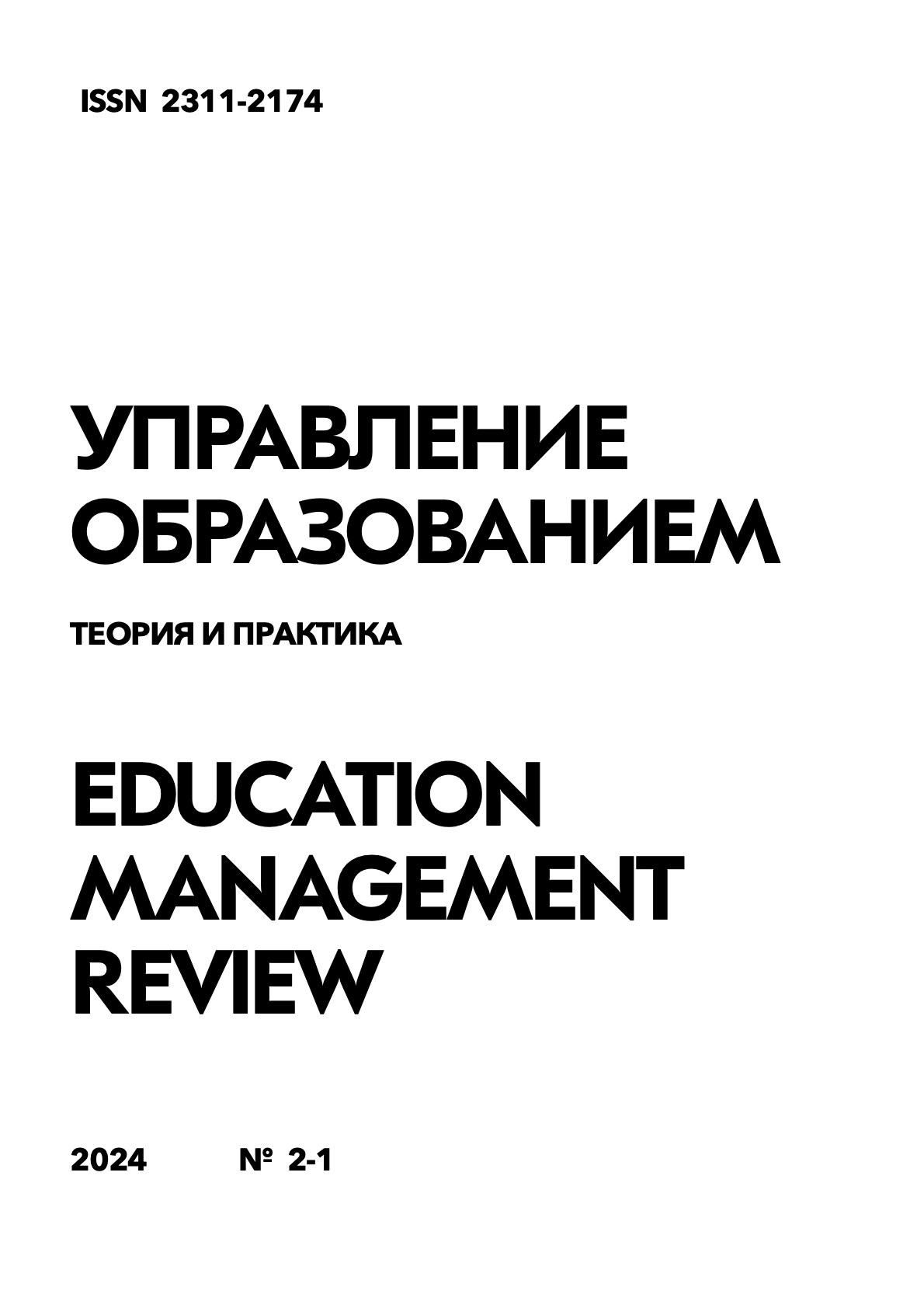Using big data to analyze and optimize the educational process in higher education institutions
DOI:
https://doi.org/10.25726/w5010-9600-8416-xKeywords:
big data, higher education, educational data analysis, educational analytics, learning personalization, machine learningAbstract
Currently, the use of big data in the educational process of higher education institutions is becoming increasingly relevant. The purpose of this study is to explore the possibilities of using big data technologies to analyze and optimize the educational process in universities. The paper uses methods of systematic literature review, analysis of specific cases of big data implementation in universities, as well as statistical methods of data processing. The results of the study show that the use of big data makes it possible to increase the effectiveness of the educational process by personalizing learning, predicting student performance, optimizing curricula and resources. For example, at Purdue University (USA), the introduction of a data analysis system on student academic performance and behavior led to an increase in student retention by 21% and an increase in the average score by 0.3 points. At the UK Open University, machine learning algorithms are used to identify students at risk of expulsion, which has reduced this figure by 12%. At Tongji University (China), the analysis of graduate employment data helped to adjust curricula and increase the relevance of the knowledge and skills acquired by students to the requirements of the labor market. In addition, big data opens up new opportunities for research in the field of education, allowing us to study the patterns of learning, factors of student success, the effectiveness of various pedagogical approaches and educational technologies in large samples. However, the introduction of big data technologies in universities is associated with a number of problems, such as ensuring data quality and security, compliance with ethical standards and confidentiality, the need to change organizational culture and develop employee competencies. Further research should be aimed at developing standards and best practices for the use of big data in higher education, studying the long-term effects of their application, as well as searching for optimal models for integrating big data technologies into the educational processes of universities.
References
Авдеева А.В., Богданова М.В. Информационные технологии в работе с дошкольниками и их влияние на дальнейший процесс обучения // Информационные технологии в образовательном процессе вуза и школы: мат. XIV Всерос. науч.-практ. конф. Воронеж: Изд-во ВГПУ, 2020. С. 5-10.
Амаева Л.А. Сравнительный анализ методов интеллектуального анализа данных // Инновационная наука. 2017. № 2-1. С. 27-29.
Вилкова К.А., Захарова У.С. Учебная аналитика в традиционном образовании: ее роль и результаты // Университетское управление: практика и анализ. 2020. Т. 24. № 3. С. 59-76.
Гимельштейн Е.А., Годван Д.Ф. Геймификация в профориентации школьников // Бизнес-образование в экономике знаний. 2020. № 1(15). С. 12-14.
Дацун Н.Н., Уразаева Л.Ю. Перспективные направления применения учебной аналитики // Ученые записки ИУО РАО. 2017. № 1(61). С. 43-46.
Зотова И.В., Онуфриенко Е.С. Использование информационно-коммуникативной технологии как средство управления педагогическим процессом в дошкольных образовательных организациях // Проблемы науки. 2018. № 5(29). С. 96-97.
Иванова И.А. Исследование ресурсов корпоративного портала в управлении вовлеченностью персонала // Управление персоналом и интеллектуальными ресурсами в России. 2018. Т. 7. № 1. С. 27-33.
Коробкова С.А. Особенности подготовки видеолекций по физике для студентов медицинского вуза // Физико-математическое и технологическое образование: проблемы и перспективы развития: мат. VI Междунар. науч.-мет.конф., Москва, 02-04 марта 2020 г. М.: Московский педагогический государственный университет, 2021. С. 144-148.
Лихачева А.Н. Оптимизация процесса обучения как способ повышения его эффективности в условиях современной образовательной парадигмы // Научный журнал КубГАУ. 2017. № 130. С. 1209-1224.
Малыш О.В., Бусель С.В. Оптимизация процесса управления образовательной организацией посредством разработки и применения специализированного программного обеспечения с элементами игрофикации // Научно-методический электронный журнал «Калининградский вестник образования». 2023. № 2(18). С. 21-41.
Налетова Н.Ю. Цифровизация образования: «за» и «против», текущие и имманентные проблемы // Педагогика. 2020. № 1. С. 43-47.
Педагогические технологии дистанционного обучения: учеб. пособие для вузов. Под ред. Е.С. Полат. 3-е изд. М.: Юрайт, 2020. 392 с.
Перминова Л.М. Цифровое образование: ожидания, возможности, риски // Педагогика. 2020. № 3. С. 28-37.
Проничева М.М., Булыгина В.Г., Московская М.С. Современные исследования синдрома эмоционального выгорания у специалистов профессий социальной сферы // Социальная и клиническая психиатрия. 2018. Т. 28. № 4. С. 100-105.
Трубачев И.В., Соловей Д.В. Сущность педагогической оптимизации и ее задачи в военном вузе // Вестник Армавирского государственного педагогического университета. 2020. № 2. С. 29- 36.
Христочевский, С. А. Перспективы и проблемы цифровизации образования / С. А. Христочевский // Новые информационные технологии в образовании: Сб. науч. трудов 20-й Международной науч.-практич. конф. 4-5 февраля 2020 года. М.: Общество с ограниченной ответственностью «1С-Паблишинг», 2020. С. 206-208.




